The bombs ripped through the busy airport terminal. Gunfire echoed. Hundreds of travelers and airport workers ran in terror while others dove for cover. Blood spilled on the floor as outside, screeching ambulances parted the crowd of stunned travellers.
The gun and bomb attack on Istanbul’s Ataturk international airport on Tuesday could signal the opening of a new front in the war with the Islamic State militants who control parts of Iraq and Syria. Losing ground on battlefields throughout the region, ISIS is seeking desperately to reclaim headlines through a campaign of attacks on civilians in the Middle East, Europe, and beyond.
Turkey has become the central target in that campaign. The June 28 bombings, which killed at least 41 people and injured over 200, were the fifth major attack on civilians in Turkey thought to have been carried out by ISIS in the last year. The slaughter at the airport raises the stakes of the conflict, dealing another blow to Turkey’s economy, raising alarms in Europe, and heaping more pressure on Turkey’s leaders to stabilize the country’s southern border with Syria. It is one more sign that otherwise stable Turkey is being drawn deeper into the regional crisis emanating from Iraq and Syria.
No group had claimed responsibility for the attack on the airport as of late Wednesday, but Turkish Prime Minister Binali Yildirim swiftly assigned blame. “The evidence points to Daesh,” he was quoted as saying, using the Arabic acronym for the group.
The Chaotic Aftermath of the Suicide Attack at the Istanbul Airport
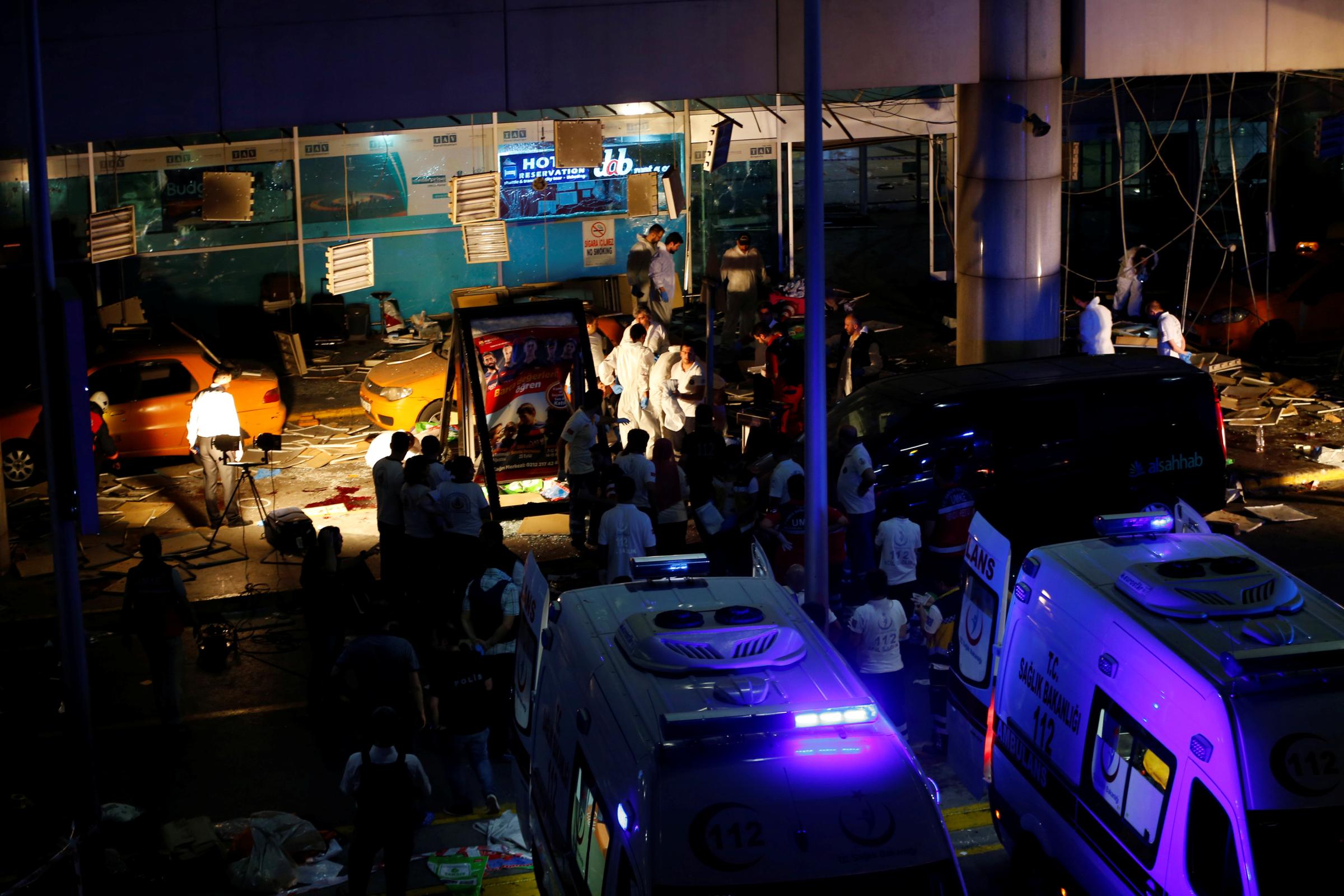
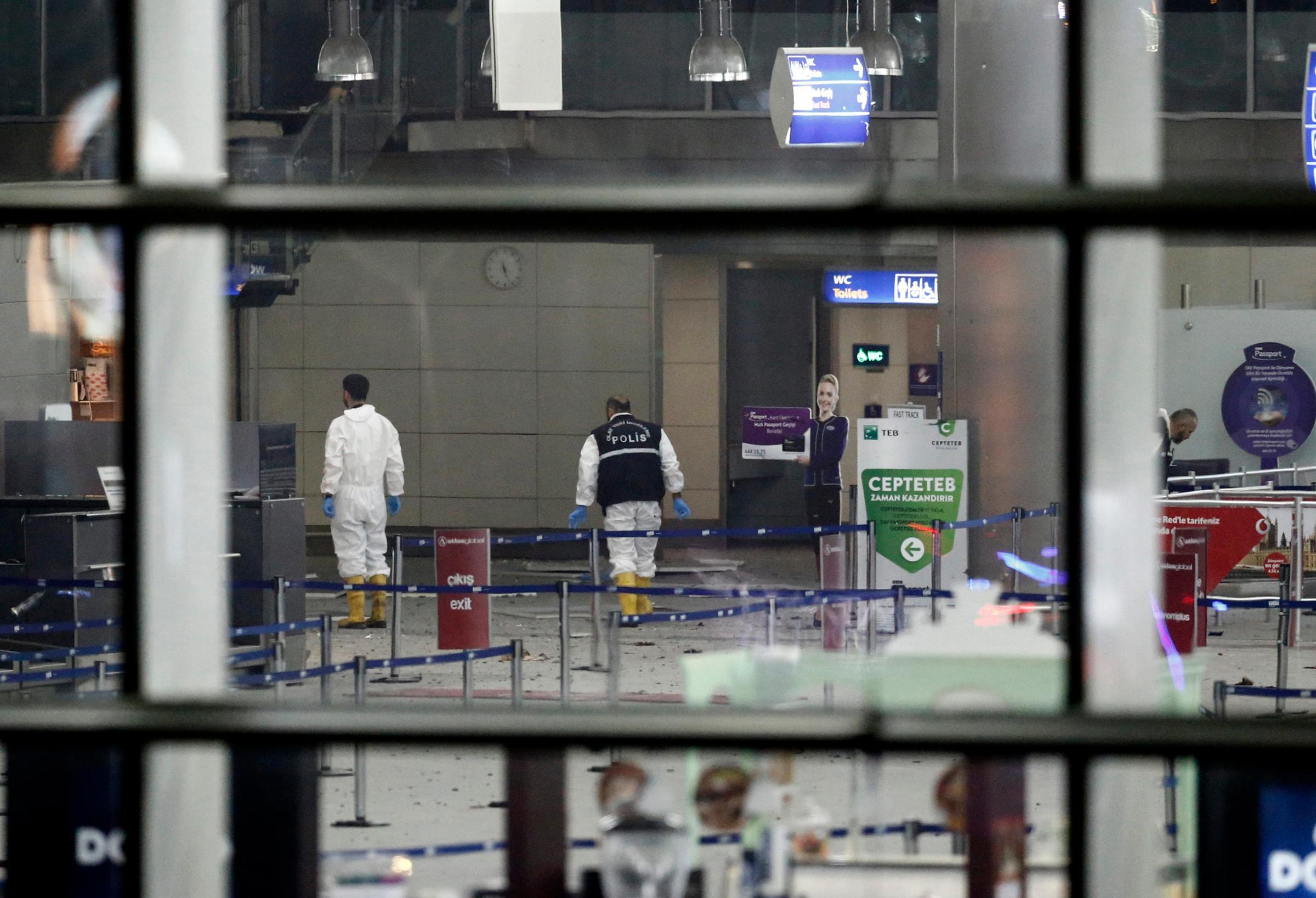
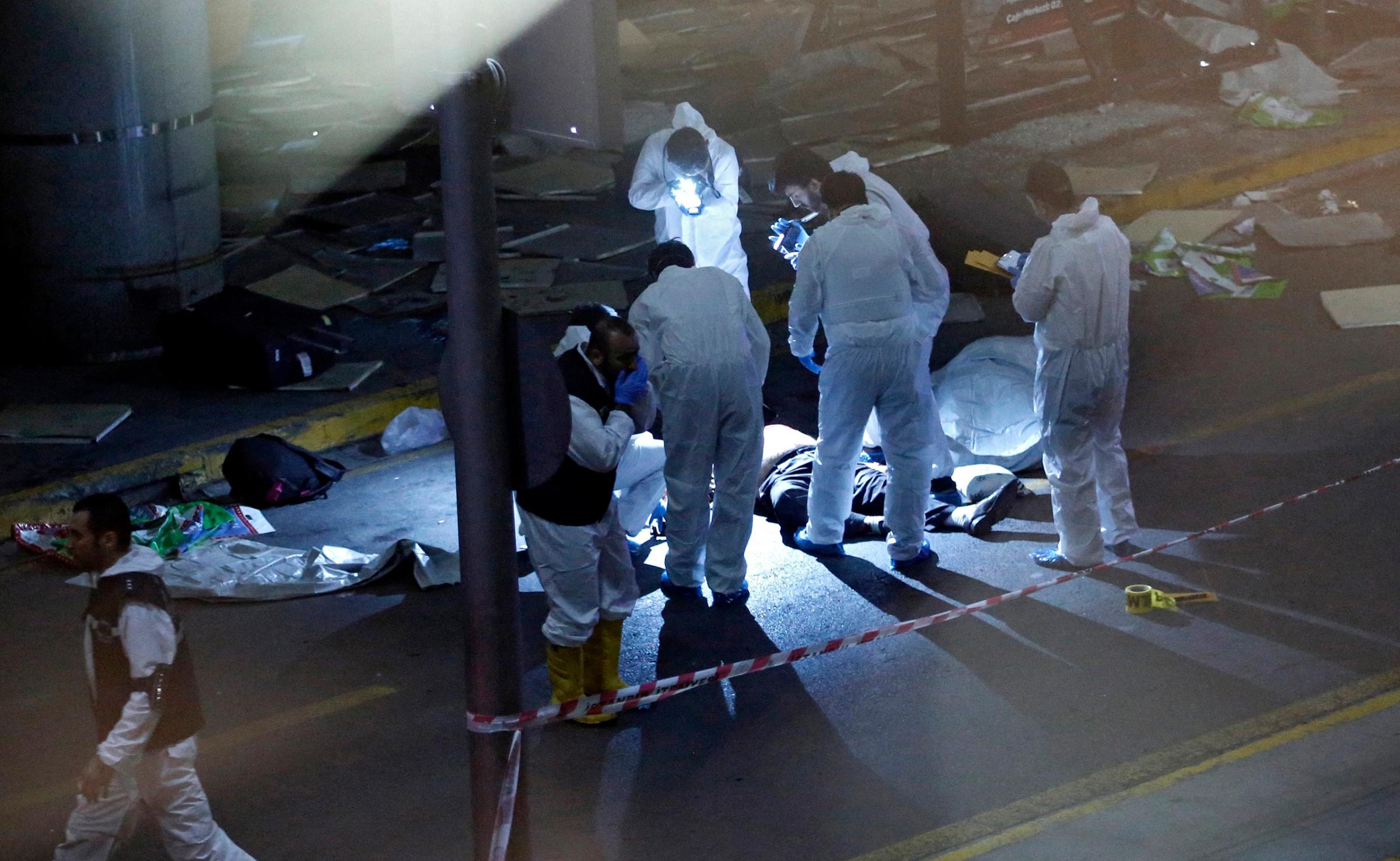
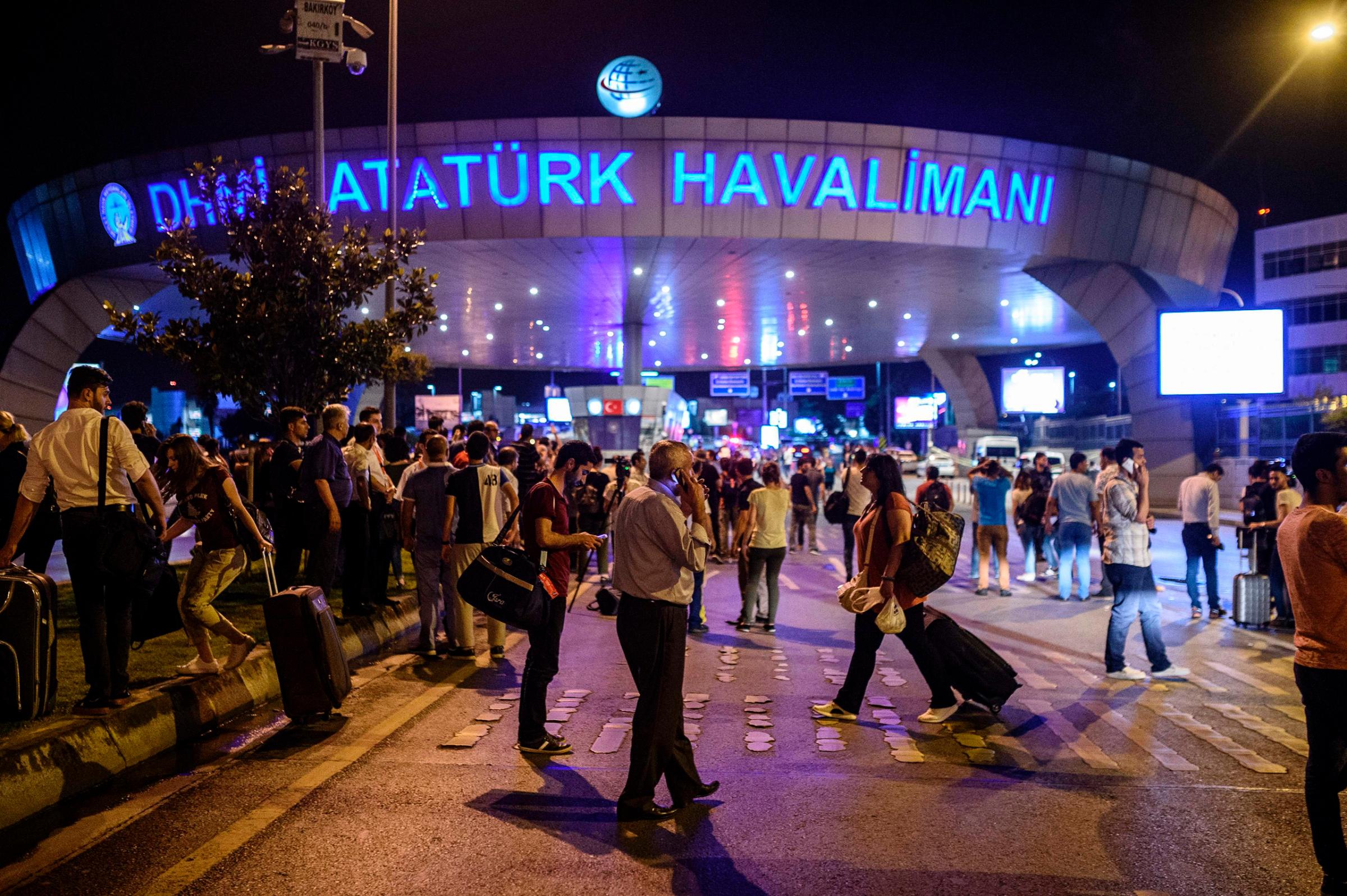
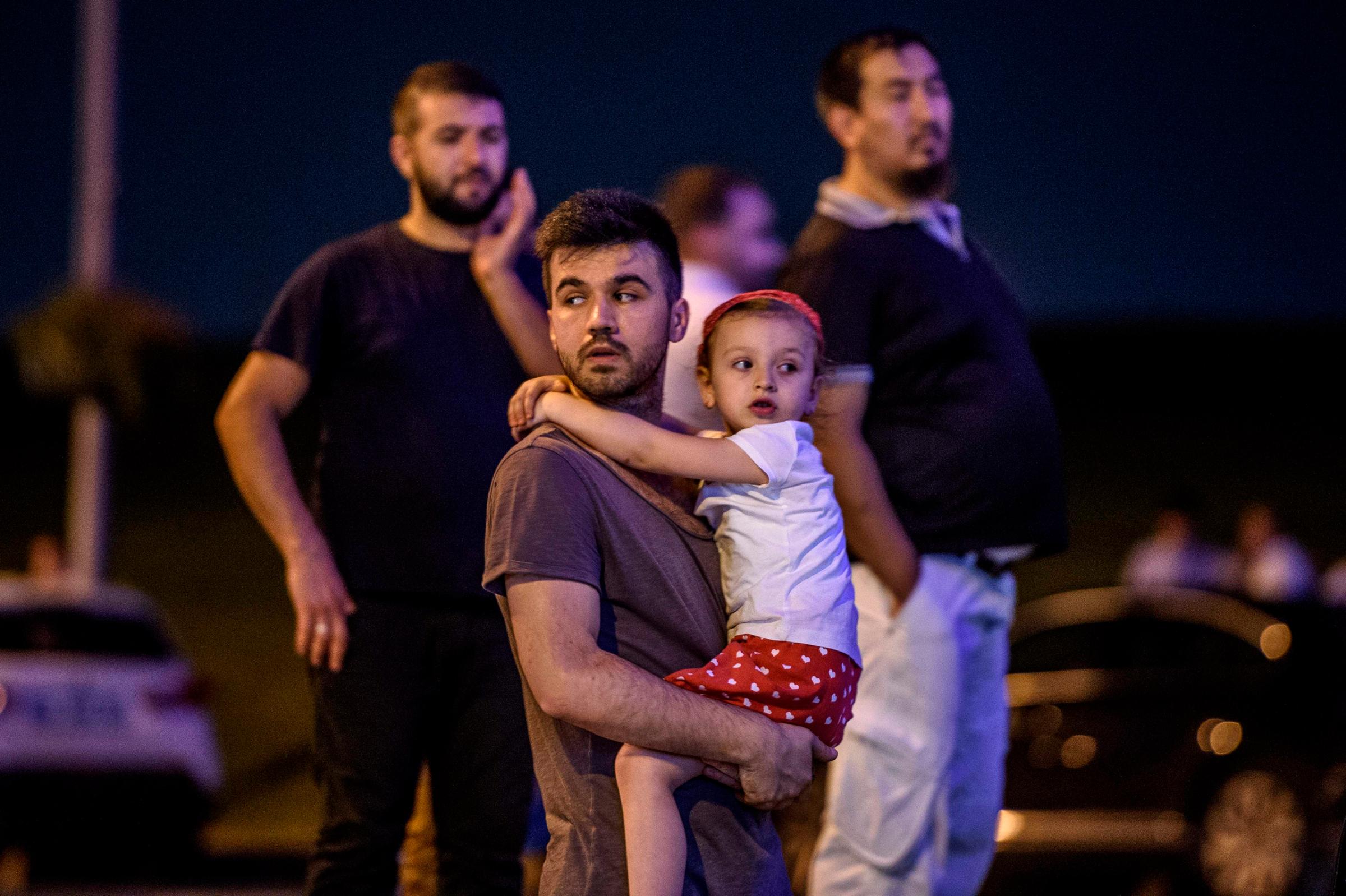
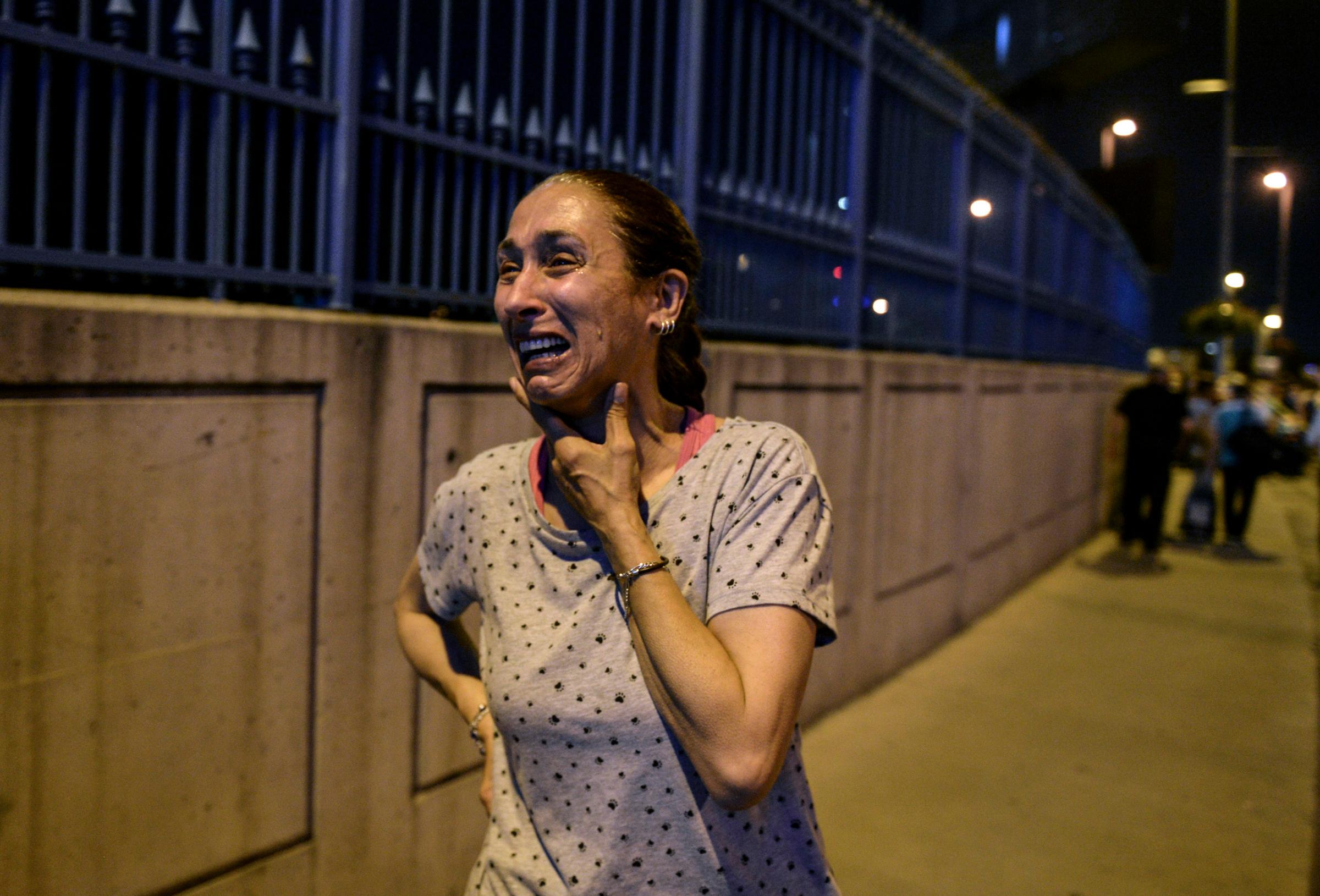
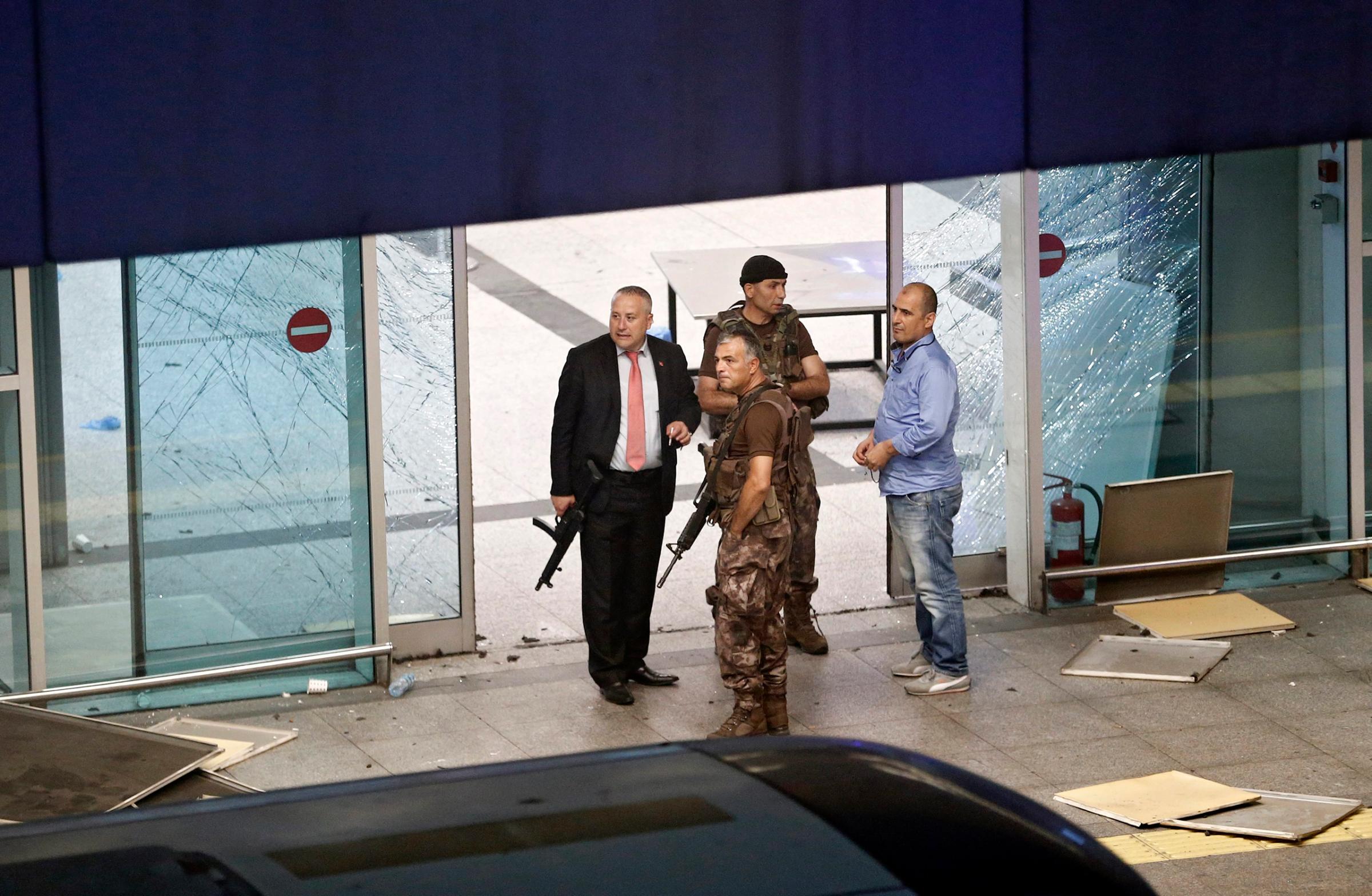
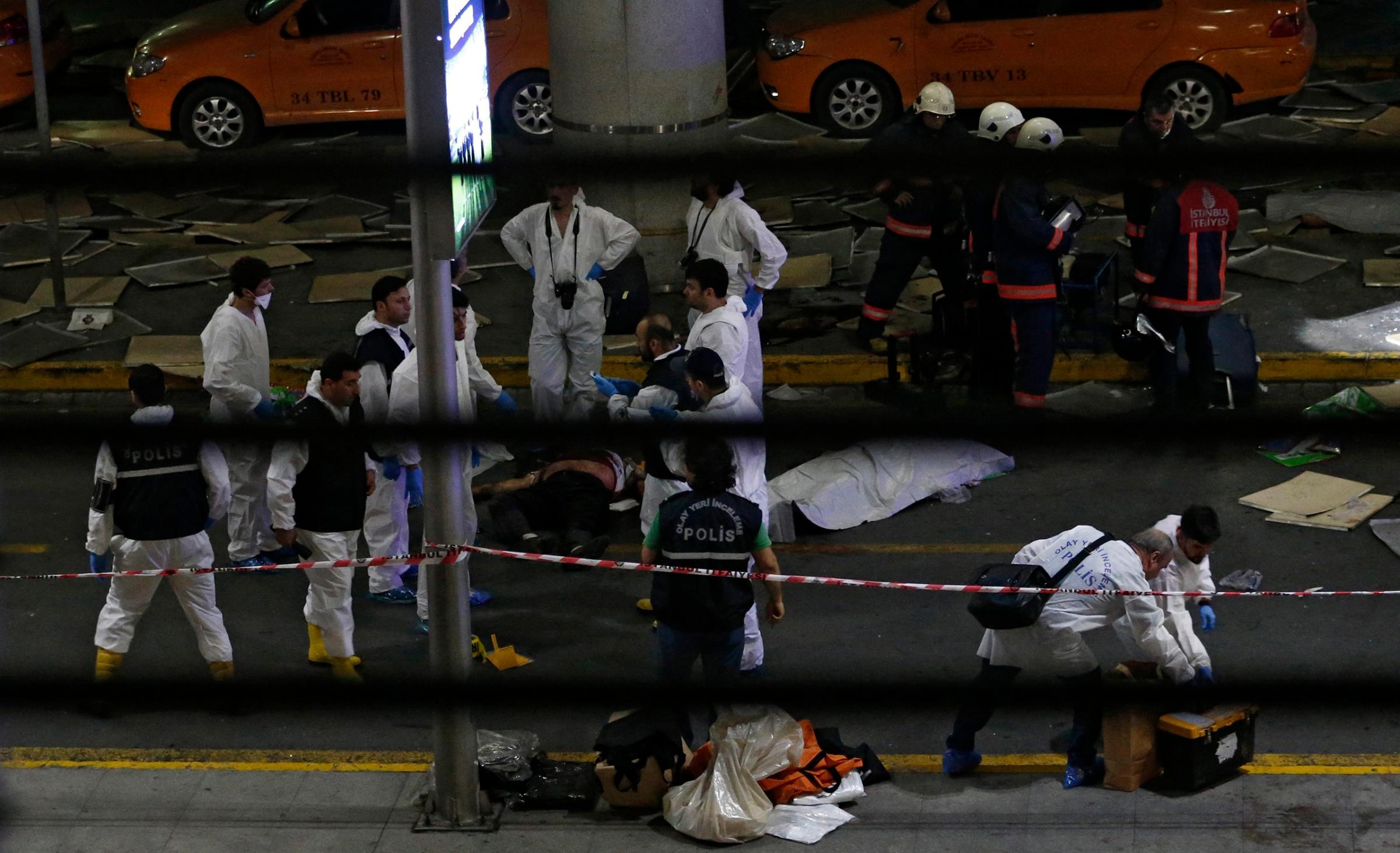
The Istanbul attack unfolded in chaotic scenes reminiscent of the killings in Paris and Brussels. Three men wearing explosive vests arrived at the airport’s international terminal by taxi, according to Turkish authorities. They opened fire and set off two explosions: one inside the international arrival hall, one near the ranks of taxis outside. The assailants died during the attack.
The bombings struck at the beating heart of Turkey’s civilian infrastructure, and a symbol of its cosmopolitanism. Ataturk airport links cities throughout the Middle East and Europe. Ironically, it has also been used as a transit point for Western ISIS recruits headed to the battlefields in Syria and Iraq. In addition to Turkish citizens, victims included five people from Saudi Arabia, two from Iraq, a Palestinian woman, and others from Tunisia, Uzbekistan, China, Iran, Ukraine and Jordan.
ISIS’ attacks inside Turkey intensified roughly a year ago, when a bombing in July blamed on ISIS killed some 32 people in the border town of Suruc. In October, suicide bombers struck a peace rally in Ankara, killing 103 people in the deadliest attack in Turkey’s modern history. The bombings continued in January and March 2016 with a pair of attacks in Istanbul targeting the cities bustling tourist districts.
Read More: 4 Reasons the War Against ISIS Is Working—and 1 Reason It’s Not
The attack is also the clearest sign to date that the civil war in Syria has become a regional crisis. The Assad regime’s war with armed opposition groups is the central cause of the massive flight of Syrian refugees and provides the fuel for jihadist groups that increasingly menace Syria’s neighbors. Having accepted 2.7 million Syrians, more than any other country, the country is now turning back desperate Syrians fleeing the war in their country.
But it’s clearer than ever that ISIS already maintains a robust network of operatives inside Turkey. In recent months, the jihadists have waged an underground campaign of terror against Syrian activists opposed to both the Assad regime and ISIS, many of whom live in Turkey’s southern towns. Suspected ISIS members beheaded an activist who helped document ISIS abuses in Syria in November, and shot dead another prominent activist in the Turkish city of Gaziantep in April.
Turkey’s government is already at war with ISIS, launching airstrikes on its positions in Syria and attempting to stanch the flow of foreign recruits transiting through Turkey. But critics have also accused the government of President Recep Tayyip Erdogan of failing to curtail the jihadist operations. Following the Ankara bombing last October, the authorities zeroed in on a single group of suspected militants in the town of Adiyaman. Human rights activists and local residents said they tried to alert police to the so-called “Adiyaman cell” before the Ankara attack, to no avail. Erdogan firmly rejects the notion that his government failed to clamp down on ISIS. “Turkey will continue its fight against all terrorist organizations at all costs until the end of terrorism,” he said shortly after the airport attack.
That reference to “all terrorist organizations” signals that Turkey’s fight is two-pronged. The Turkish state is also at war with Kurdish insurgents based in the southeast of the country, who have claimed responsibility for a separate series of deadly bombings as a slow-burning civil war in Turkey’s southeast has escalated, leaving thousands dead and 350,000 displaced. The unrest in the southeast represents another dimension of the spillover from the war in Syria, as young Kurdish militants in Turkey take inspiration from their counterparts battling ISIS.
The attack on Ataturk airport came on the same date ISIS proclaimed itself an Islamic “caliphate” in 2014 in the territory it seized in Syria and Iraq. But two years on, its so-called “state” is shrinking rapidly as rival forces make major advances in Iraq, Syria, and Libya. Iraq’s government declared victory over ISIS in the city of Fallujah on June 26. In Syria, U.S.-backed Kurdish-led forces are edging closer to the jihadists’ de facto capital of Raqqa.
As it loses territory, ISIS is waging a desperate bid to reclaim momentum through attacks on civilians far from the theater of war. In May, ISIS spokesman Abu Mohammad al-Adnani issued a specific call for external attacks during the fasting month of Ramadan. Jihadists have acted on that call, from Baghdad to Orlando, Florida (though Omar Mateen’s killing spree was likely inspired as much by personal hatred as by ISIS). As the campaign of killings continues, neighboring countries like Turkey are directly in the line of fire. “It’s the tyranny of geography. It’s the Western country, NATO ally that’s closest to this geography of instability,” said Sinan Ülgen, a visiting scholar at Carnegie Europe, a think tank in Brussels. The more ISIS militants are squeezed the more they lash out, he says, “as a signaling mechanism to the outside world that they continue to be operational.”
Erdogan too is attempting to send signals to the outside world, having taken steps in recent days to reverse a slide toward geopolitical isolation. On June 29, the President spoke with Russian President Vladimir Putin for the first time since Turkey shot down a Russian warplane in November 2015. Turkey and Israel also announced a restoration of ties on June 28, after a period of tension. It’s possible these shifting alliances could accompany a change in approach to Syria, where Turkey has prioritized combatting Assad and containing Kurdish militants. But in the meantime, ISIS extends its bloody battlefield ever further.
More Must-Reads From TIME
- Dua Lipa Manifested All of This
- Exclusive: Google Workers Revolt Over $1.2 Billion Contract With Israel
- Stop Looking for Your Forever Home
- The Sympathizer Counters 50 Years of Hollywood Vietnam War Narratives
- The Bliss of Seeing the Eclipse From Cleveland
- Hormonal Birth Control Doesn’t Deserve Its Bad Reputation
- The Best TV Shows to Watch on Peacock
- Want Weekly Recs on What to Watch, Read, and More? Sign Up for Worth Your Time
Contact us at letters@time.com